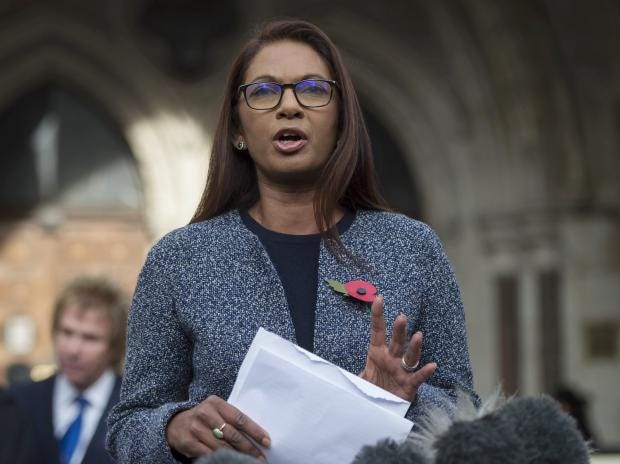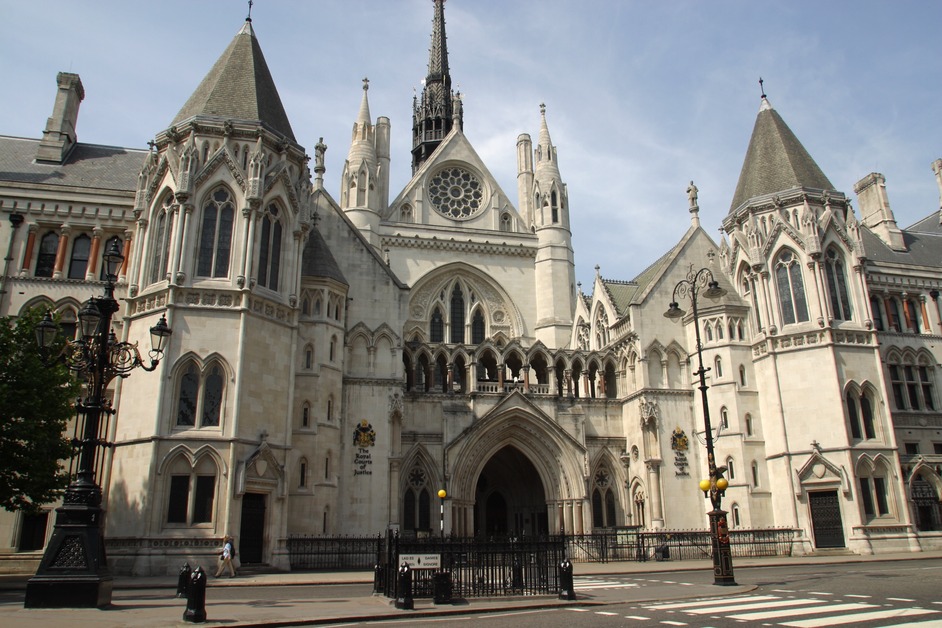ANTI-ENGLISHNESS
IN THE JEWISH LOBBY?
Earlier
this year one of our activists, who was thinking of standing in the General
Election in the Bradford area, and who not unreasonably thought that West Yorkshire's Jews might feel
particularly beleaguered in Bradford, approached the Jewish community leaders to
see whether there might be common ground. The story is best told in her own
words:-
- I met on Sunday 4th June at Starbuck’s in Bradford Centenary Square, with Laurence Saffer, (pictured above) President of Leeds Jewish Representative Council (part of the Board of Deputies of British Jews), Rabbi Rudi Levi, Chairman of the Bradford Synagogue, and a lady whose name I cannot recollect.
- I was surprised to find that three people had come to meet me as I thought I was just meeting Laurence Saffer believing him to be the Rabbi of the Bradford Synagogue.
- We began by introducing ourselves and I explained my background and why I was keen to hopefully establish links between our organisations.
- Laurence Saffer explained that they have a policy of not working with extremist groups such as the BNP and National Front, but that they do invite guests from other political parties to speak at various conferences and events; and provide support for candidates standing in elections.
- I found this reassuring and then was completely taken aback when the tone of the conversation began to change. Laurence Saffer drew a copy of our manifesto from his briefcase, slapping it down on the table, and stated that he could not possibly sell me or my party to the Board of Deputy of British Jews, based on what he had read, as he felt that I was a racist and I belonged to a racist party. (This section of the manifesto is intended to make clear the rights of the English Nation to our historic culture in our country by giving primacy to our indigenous English culture in England as opposed to the multi-culturalist idea that English culture and our Society’s integrity must give way to the interests of a "diversity" non-English communities).
- Obviously, I responded with a firm rebuttal of his claims and Rabbi Rudi Levi was a little more conciliatory – he was an elderly gentleman who seemed to be more approachable.
- He asked our views on shechita slaughter and labelling of foods where I mentioned the findings of the FAWC Report several years ago, and that I felt there was a need to debate the issue of pre-stunning of animals before slaughter and the need for more transparent labelling. I also mentioned the fact that some Muslims in Australia and in parts of Europe had developed a form of pre-stunning which complied with their religious beliefs and that perhaps this was something both the Muslim and Jewish communities could think of adopting.
- We all agreed that a person’s motivation for questioning these religious practices was important and I stressed that, for my part at least, it came purely from an ethical perspective regarding animal welfare.
- I was asked further about our position regarding circumcision and other Jewish religious beliefs and assured them that there was no problem regarding these matters and that they had nothing to fear from us.
- Laurence Saffer, however, became increasingly condescending and belligerent pointing repeatedly at several clauses in the party manifesto which he claimed he had real issues over and had highlighted with asterisks.
- He physically pointed to clause 3.15.13.2 and other clauses he had marked with an asterisk regarding radical Islam which it mentioned the figures about the minuscule number of mosques which identified as moderate.
- I admitted that I couldn’t recall this specific clause, that it would have been adopted before Veritas merged with the English Democrats but that it seemed to have a credible source and was therefore a reasonable position to take.
- Sadly, this gave him more reason to be belligerent, exhorting that I, as Deputy Chairman should know precisely what was in our manifesto and that my reply simply wasn’t good enough.
- Laurence Saffer also criticised our policy on asylum seekers and refugees and highlighted, for particular criticism, our position on withdrawing from the 1951 UN Convention of Human Rights, contrasting this to the Kindertransport programme during WW2.
- Rabbi Rudi Levi was interested to know why this was our policy and was subsequently more understanding of the explanation I provided. Laurence Saffer, however, sadly remained rather infuriated regardless and not open to debate on these issues. (Given what I know now that he is an Immigration and Asylum judge in Leeds, it is not surprising).
- There were several further clauses, one which was rather badly drafted, 3.15.12.3 – 2 and 3.15.12.3 – 3, II referring to the admission and deportation of those we believed did not conform to English values and to our policy regarding establishing a programme of education for Islamic community leaders and Imams which might extend to other religions causing concern, to which Laurence Saffer again took issue.
- The latter policy where it states ‘…and extend this to other religions causing concern’ was a serious point of contention as I had to concede after some persuasion, that it could also apply to the Jewish community – although I was keen to point out that that would not have been the intent.
- We had a brief discussion on the work that the Jewish community does in Leeds and surrounding area promoting community cohesion and inter-faith dialogue, especially with the Muslim community. I told him that when I used to teach RE in Bradford I had encouraged this kind of work and dialogue and thought that we had found some common ground at last.
- At some point in the conversation Laurence Saffer asked how large I thought the Muslim and Jewish populations were in Bradford and appeared to argue that it was vital that they worked with the Muslim community for their survival, as the Muslim population already outnumbered the Jewish community in the Bradford area by 50-1.
- Then the conversation moved to the Labour MP for Bradford West, Naz Shah, who was apparently saved from being expelled from the Labour party for her alleged anti-Semitism due to their intervention - and tuition. To my surprise, Mr Saffer was keen to point out that they were supporting her candidature in the general election. I found this very disconcerting as I couldn’t believe just how naïve and foolish they were being given her clear anti-Semitic views.
- Laurence Saffer then decided that they had to go, put the copy of our manifesto back in his briefcase, got up from the table and walked away without shaking my hand. His two colleagues were polite and shook hands. I assured them that they were mistaken about who I was and what I stood for and we left things open for me to contact Laurence Saffer should I wish to do so.
- I came away feeling completely humiliated and belittled and betrayed as I have spent my life fighting anti-Semitism and injustice and felt I had something to offer in support of the Jewish community.
I
didn’t think that something so outrageous should be left unchallenged and
therefore wrote the following letter to the British Board of Jewish
Deputies:-
Dear Sirs
Re: Complaint against
Laurence Saffer
We act for Mrs H. We write to make
a complaint against Laurence Saffer arising out of an incident on the
4th June 2017.
Mrs H. has set out what happened in
some detail in her Witness Statement, a copy of which we enclose for your
information. I hope you will agree that the behaviour complained of is
unacceptable and should be sanctioned. Please confirm receipt.
We await hearing from you on the
steps you propose to take to deal with the complaint.
Yours faithfully
The
response I got was this email:-
In a message dated
11/12/2017 17:50:54 GMT Standard
Time, tony@tonyleifer.com writes:
Dear Mr Tilbrook,
I refer to your letter to the Board of Deputies of British
Jews dated 27 November and to our telephone conversation today. I write in my
capacity as the chairman of the Board’s constitution committee, which is
responsible for its code of conduct and dealing with breaches of that
code.
Your client, Mrs H., in her statement, describes an incident
involving Laurence Saffer which she says took place on 4 June, I assume this
year. On her behalf you ask the Board to sanction Mr Saffer’s
behaviour.
Mr Saffer was the Deputy for Leeds Jewish Representative
Council until he resigned in January 2017, a date prior to the alleged incident,
and as such the Board has no jurisdiction to deal with this
matter.
Kind regards
Tony Leifer
(Notice no apology or even an expression of regret!)
My
reply was :-
From:RobinTilbrook@aol.com
Sent: 15 December 2017 13:42
To: Tony Leifer
Subject: Re: Complaint against Laurence Saffer
Sent: 15 December 2017 13:42
To: Tony Leifer
Subject: Re: Complaint against Laurence Saffer
Dear Mr Leifer
Re: Mrs H.
Thank you for your email of the 11th and for
responding to my letter dated the 27th November. It is correct that
the incident was on the 4th June this year.
However as of the 30th May 2017 Mr Saffer was
using the email address PresidentLJRC@mail.com and the Leeds Jewish
Representative Council has him on their website as President. Here is a link to
that website >>> http://ljrc.org/about-us-2/meet-the-ljrc-team/
Please could you therefore review your stance?
Yours sincerely
R C W Tilbrook
To
which the reply was:-
Dear Mr
Tilbrook,
The relevant dates
are those when Mr Saffer was a Deputy of the Board of Deputies of British Jews,
as set out in my earlier email. The email address he was using is not what
matters.
Regards
Tony
Leifer
My
further reply:-
From: RobinTilbrook@aol.com
[mailto:RobinTilbrook@aol.com]
Sent: 15 December 2017 19:55
To: Tony Leifer
Subject: Re: Complaint against Laurence Saffer
Sent: 15 December 2017 19:55
To: Tony Leifer
Subject: Re: Complaint against Laurence Saffer
Or his appearance on the
Leed's website?
Mr Leifer’s further
response:-
Subj: RE: Complaint
against Laurence Saffer
It is only to members
of the Board of Deputies, and not of other entities, to which the code of
conduct applies.
So that seems the end of the road for the complaint and no attempt to distance the Board of Deputies from what Mr Saffer said.
This is what the Jewish Leadership Council website says about Laurence Saffer:-
Laurence Saffer has lived in Leeds all his life and has been involved in a number of communal groups over the years, including Habonim Dror.
As LJRC president, Laurence aims to ensure that the voice of all parts of the Leeds Jewish community and surrounding areas is heard and acted upon by all local decision makers, and that the Jewish community continues to be loud and proud. Laurence is also a judge who sits in Bradford and London.
The Habonim Dror claims to be:-
A Socialist Zionist Culturally Jewish youth movement. Through a progressive lens we create a culture and educate based on our worldly values of equality.
Habonim Dror has been pioneering the future of the Jewish people for over 85 years internationally and is continuing to do so in a fun and engaging way. We do this through weekly activities, residential weekends, Day-Schemes, Israel programs and Summer Camp.








